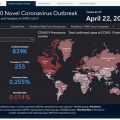Last year, eCommerce sales reached $794.50 billion in the United States alone. With more people staying home due to the pandemic, sales increased from the previous year. However, because of the convenience of online shopping, experts believe that it is here to stay.
If you run an eCommerce business, this is excellent news. To be successful, though, you’ll need to ensure your eCommerce website or application meets the needs of your returning and potential customers.
You can do so by using eCommerce analytics tools, which will provide you with the data and information necessary to keep track of your key performance indicators (KPIs). Plus, if they’re truly advanced, they’ll provide you with the necessary resources to better your current marketing methods.
There are numerous options to choose from, which is why we’ve put together this list of seven of the best eCommerce analytics tools on the market right now. Keep on reading to find out what they are.
1. Google Analytics
Google has created many different software programs, and when it comes to analytics, they don’t fall short. You can use Google Analytics for your website or app, and the best part is that you can do so for free. Here are some of the key features of this software program:
- You can integrate other programs, like Google Ads and Data Studio, onto your Google Analytics dashboard to help keep everything in one place.
- Its acquisitions report shows you how visitors found your website, like through social media platforms, Google Ads, email campaigns, etc.
- The platform allows you to set goal conversions and track them to see if customers are having difficulty navigating your website.
If you find the free version doesn’t have enough features, you can always switch to the 360 version of Google Analytics. They don’t list the price on their website, so you will need to speak with the sales department.
2. Crazy Egg
Whether you’re just starting out or have a well-established online business, Crazy Egg works well with companies of all sizes. Their analytics tools are accessible, meaning all your team members can use this platform even if they do not have a background in marketing.
These special features will help you increase website usability:
- The heatmap uses visuals to identify the most popular pages on your website.
- The confetti report shows you the individual clicks on your web pages. You can break them down into a color-coded fashion by the number of users, their demographics, and how they accessed your website.
- The scrollmap breaks down how far users scroll down each page on your website before they click off.
This program comes in five different packages: basic, standard, plus, pro, and enterprise. The basic one costs $24/month, and prices increase from there.
3. Glew.io
Big retailers will likely find Glew.io useful, especially if you sell products on numerous sites. Not only will they help you organize the data coming from your customers and your website, but they’ll keep track of your inventory as well.
Here are some other features that come with Glew.io:
- If you run ads on multiple platforms, you can integrate the data from each one onto your dashboard to see which ones create more revenue.
- It breaks down customer insights, segments, attribution, and retention.
- Companies with subscription services can track analyze which plans are most popular, how much revenue they each bring in, and how long people tend to keep their plan before unsubscribing.
Glew.io sells their package based on the number of months you want to use their subscription. The bigger the package, the larger a discount you’ll receive. It is $70/month for the 12-month subscription, $71/month for 24 months, and $67/month for 36 months.
4. Matomo
This software program prides itself on being a better alternative to Google Analytics because it has similar features, but it allows you to own your own data. Unlike Matomo, Google Analytics is not General Data Protection Regulation (GDPR) compliant. These are some of the other features that set it apart from other analytics software programs:
- On top of the ability to own your data, there’s also no data limit on this platform.
- It is an A/B testing platform, so you can easily compare website variants to see which is more successful with your customers.
- Matomo values privacy, so if it is against your company’s ethics to track personal data, you can turn this feature and the IP tracker off.
When you choose Matomo’s analytical tools, you have the option to use the on-premise server for free, or you can purchase their Cloud server option. The price is based on how many views your website receives.
Fifty-thousand page views is the lowest option at $29/month, and 50 million views is the highest option at $11,900/month. There are plenty of plans in between, too.
5. Decibel
If you want your online analytics tools to focus on the user’s experience, Decibel is the one for you. Medallia, a SaaS platform known for its dedication to customer service, recently purchased it.
Here are a couple of the features this analytics platform offers:
- It provides a Digital Experience Score (DXS) for your website and apps on a scale of 0-10. Every visitor has a DXS, which will assist you when figuring out what part of your systems you would like to improve upon next.
- The Session Replay feature captures a user’s experience on your website, no matter what device they’re using. These visuals will show up on your dashboard and notify you of how many issues the customer ran into, so you can fix them immediately.
There are two web packages and one application package available on Decibel’s website. However, you will need to contact one of their sales representatives for a quote.
Start Using These eCommerce Analytics Tools Today
Now that you know a bit about what each of these eCommerce analytics tools offers, you can choose which one is best for your company. When you better understand how your customers operate and the marketing strategies you currently have set in place, you can make improvements to take your business to the next level.
If you liked this post, check out the rest of our blog. We’ve cover topics regarding how best to run your blog and increase your site traffic.






